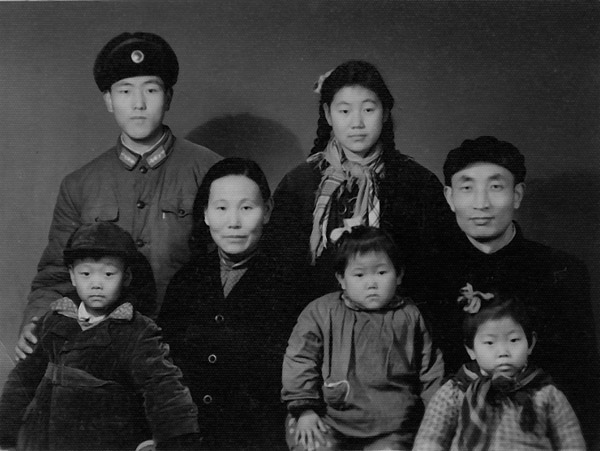 |
|
A photo from 1962 shows Zhou (right) with his family. [Photo provided to China Daily] |
Lifelong passion
He joined the Party in 1943 and became a soldier the year after, where he fought in around a dozen battles during the War of Resistance Against Japanese Aggression (1931-45) and the War of Liberation (1946-49).
During one battle in 1946, Zhou had a narrow escape. A bullet pierced his right lung and then hit a fellow soldier next to him. Zhou survived after two-thirds of his right lung and a rib bone were removed during surgery, but his comrade died from his own wounds.
"He said he felt sorry for his comrade and grateful to the Party and the other soldiers who rescued him from danger," says Zhou Weiping, adding that her father's satisfaction with life and sense of loyalty to the Party partly stemmed from this experience, which remained etched in his memory as much as the jagged scar below his left shoulder.
In Zhou Zhifu's later life, he suffered from osteoporosis, coronary heart disease, hearing impairment and other illnesses. Despite this, he insisted on studying Communist Party theory and continued to read newspapers with the help of a reading glass, and often took notes.
Even when he was bedridden during the last two years of his life, he asked his daughters to read the news to him to keep abreast of Chinese current affairs.
"After surviving the war years, he always kept in mind that he wanted to repay the Party and the country for bringing him a happy and abundant life," says Zhou Weiping.
In January, knowing that he had one foot in the grave and would be no longer able to contribute to the Party and the country after his death, Zhou handed over a sum of money that was enough to cover a hundred years of Party membership dues based on the current rates.